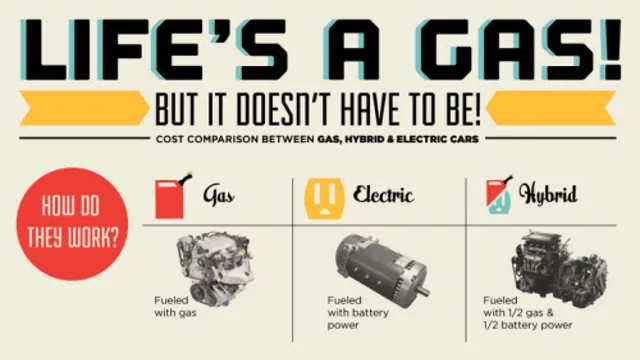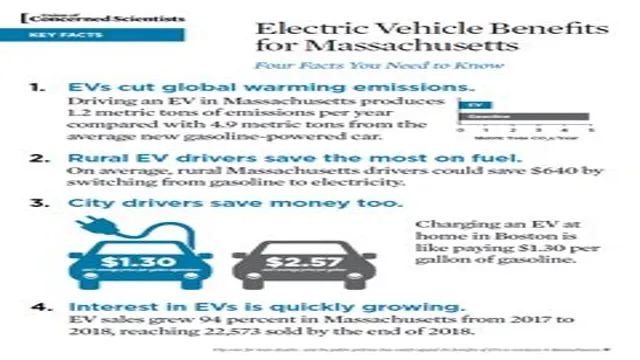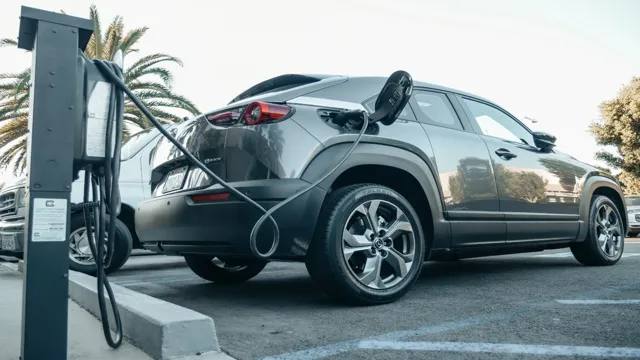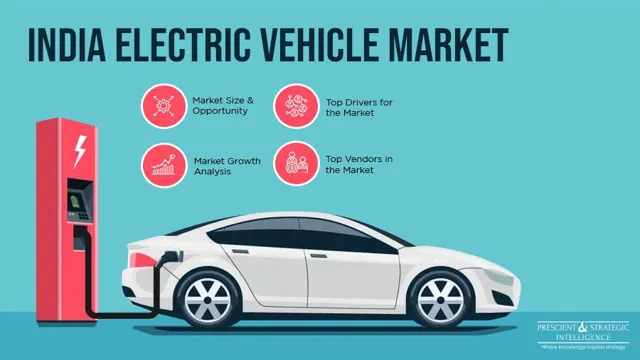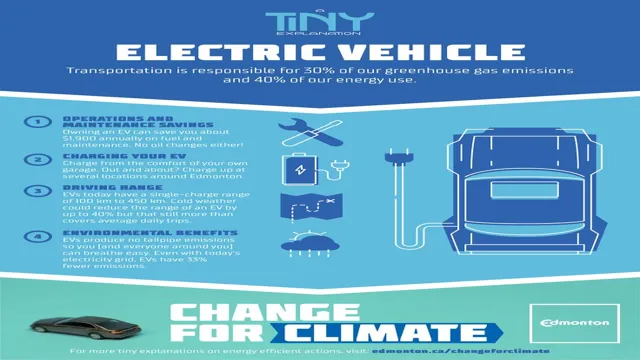Going Electric: The Top Benefits of Switching to an Electric Car
Have you ever considered the benefits of switching to an electric car? Not only are they better for the environment, but they also offer a multitude of advantages that you may not have considered. With advancements in technology and a growing emphasis on sustainability, electric cars are quickly becoming a more appealing option for drivers. From cost savings to convenience, the benefits of electric cars are worth exploring.
In this blog post, we’ll dive into some of the top perks of owning an electric car and why you might want to consider making the switch.
Lower Cost of Ownership
One of the biggest benefits of getting an electric car is the lower cost of ownership. While electric vehicles may have a higher upfront cost than traditional gas-powered cars, they come with considerable long-term savings. One of the major cost benefits of owning an electric car is that they require less maintenance.
Electric cars have fewer moving parts than their gas-powered counterparts, meaning fewer parts to wear out and replace. Additionally, electric cars have regenerative braking systems, which can save drivers money by reducing brake wear and extending the life of brake pads. On top of that, the cost of electricity is significantly less than the cost of gasoline, so electric car owners can save a lot of money when it comes to fuel costs.
With lower maintenance costs and cheaper fuel, owning an electric car can ultimately save drivers a substantial amount of money in the long run.
Electricity vs Gasoline
When it comes to the cost of ownership, electric vehicles have a clear advantage over their gasoline-powered counterparts. While it might seem like electric cars are expensive upfront, the lower cost of maintenance and fuel makes them more affordable in the long run. With an electric car, you don’t have to worry about oil changes, transmission repairs, or other costly engine maintenance.
Plus, since electricity is cheaper than gas, you can expect to save a significant amount of money on fuel costs. In fact, studies have shown that electric cars can save owners up to $10,000 over the lifetime of the vehicle. So, if you’re looking for a cost-effective option that’s better for the environment and your wallet, it might be time to consider making the switch to electric.

Less Maintenance
When it comes to owning a vehicle, one significant factor to consider is the cost of ownership, which includes maintenance expenses. Luckily, electric cars have a significant advantage in this area, as they require less maintenance compared to traditional gasoline-powered vehicles. With an EV, there’s no need to worry about changing oil, replacing spark plugs, or dealing with a complicated transmission system.
The absence of these components in electric cars means that their maintenance requirements are significantly lower, resulting in lower ownership costs. EVs have simpler mechanics, making them easier to maintain, and with fewer moving parts, they’re less susceptible to breakdowns and general wear and tear. As a result, electric car owners can save a lot of money over the long run, making them a more appealing option for drivers who want to save money on transportation costs.
With the expected rise in EV adoption, it’s clear that the future of transportation is headed in a more cost-effective and sustainable direction.
Environmental Impact
One of the biggest environmental benefits of getting an electric car is that they emit significantly less greenhouse gases than traditional cars with internal combustion engines. In fact, researchers have found that electric cars can reduce emissions by more than 50%, even when powered by electricity from the grid. Not only that, but electric cars also have a smaller carbon footprint because they don’t need oil changes and have fewer moving parts, which means less energy is required to produce them.
Another advantage is that electric cars can be powered by renewable energy sources like solar and wind power, reducing our reliance on fossil fuels. With the increasing global awareness of climate change, electric cars are quickly becoming a popular and responsible choice for drivers who want to reduce their impact on the environment.
Reduced Emissions
Reduced Emissions Reducing emissions is no longer an optional task that companies can put on the backburner. It’s a critical component of environmental sustainability. From using renewable energy sources to investing in electric vehicles and improving manufacturing processes, businesses are focusing on reducing their greenhouse gas emissions.
The impact of these actions is significant. By reducing emissions, companies are directly contributing to cleaner air and reducing the amount of carbon dioxide in the atmosphere. It’s a win-win situation.
Not only does it benefit the environment, but it also provides businesses with a competitive advantage. Consumers are increasingly seeking out eco-friendly products and services, and companies that prioritize sustainability are likely to attract more customers. By investing in reducing emissions, businesses can help create a better and more sustainable future for everyone.
Renewable Energy Sources
Renewable energy sources play a vital role in reducing the environmental impact of power generation. Unlike traditional energy sources like coal and oil, renewable energy sources are clean, sustainable and do not emit harmful pollutants into the environment. Wind and solar power, for instance, generate electricity through clean energy technologies, meaning that they fall under the classification of green energy sources.
Adopting renewable energy sources serves as an efficient way for us to mitigate our dependence on fossil fuels while safeguarding the environment. However, it is crucial to understand that renewable energy sources also have their challenges, including land-use conflicts and high infrastructure costs. Despite these challenges, the benefits of renewable energy sources are indisputable, which is why many governments are implementing strategies to encourage their usage.
By embracing renewable energies, we can actively reduce the ecological footprint on our planet.
Improving Air Quality
Air pollution continues to be a major environmental concern across the world. There are many sources of air pollution, including industrial activities, vehicle emissions, and burning of fossil fuels. The impact of air pollution on the environment can be severe; it can lead to a number of health problems, harm wildlife, and damage ecosystems.
Additionally, air pollution can contribute to climate change. However, there are steps we can take to improve air quality. One such step is to reduce our reliance on fossil fuels by using renewable energy sources such as wind and solar power.
Another step is to encourage the use of public transportation, biking or walking instead of private vehicles, in order to reduce traffic-related pollution. Planting trees and promoting green spaces within cities can also help to purify the air. It is important for us to take action to improve air quality and protect our planet for future generations.
Advanced Features
Electric cars are becoming increasingly popular due to the numerous benefits they offer. One of the key advantages of getting an electric car is their advanced features. These vehicles often come with cutting-edge technology that is designed to improve the driving experience and increase efficiency.
For example, many electric cars have regenerative braking systems that capture energy that is usually lost during braking and stores it for later use. Additionally, most electric cars have smart charging systems that enable drivers to charge their vehicles at home, work, or on the road. Some electric cars also have advanced safety features, such as lane departure warnings and blind spot detection, to keep drivers safe on the road.
Overall, choosing to invest in an electric car means not only doing your part for the environment but also having access to some of the most advanced features on the market today.
Regenerative Braking
Regenerative braking is a revolutionary technology that has taken the automotive industry by storm. The reason for its popularity is clear – it’s an energy-efficient method of slowing down or stopping a vehicle. The technology works by converting the kinetic energy of the moving vehicle into electrical energy, which is then stored and used to power the vehicle’s systems, such as the lights and the air conditioning.
This helps to reduce the amount of energy required from the engine, resulting in lower fuel consumption and reduced emissions. It’s a win-win situation for both the environment and the driver, who benefits from lower fuel costs and a smoother driving experience. In addition to being a greener alternative to traditional braking systems, regenerative braking also allows for more precise and controlled deceleration, making it safer for drivers and passengers alike.
It’s no surprise that this advanced feature has become a must-have for modern vehicles.
Quiet Operation
When it comes to modern air conditioning systems, quiet operation is becoming increasingly important for homeowners. People want to stay cool without the disruptive noise that traditional AC units often create. Fortunately, there are many advanced features in newer models that cater specifically to this need.
For instance, some AC units have a special “quiet mode” that significantly reduces noise levels. Additionally, many modern units have variable speed fans that adjust to the space they are cooling, making it easier to create a peaceful environment. Other features like sound dampening technology also go a long way in reducing noise and ensuring that your home remains as quiet as possible.
The keyword “Quiet Operation” is used throughout the paragraph to highlight the importance of this feature and to connect with readers who are specifically looking to reduce noise in their homes.
Government Incentives
When it comes to the benefits of getting an electric car, government incentives are a key factor. Many countries and states offer tax credits, rebates, and other incentives to encourage the purchase and use of electric vehicles. For example, in the United States, there is a federal tax credit of up to $7,500 for the purchase of an electric car.
Some states also offer additional incentives, like California’s Clean Vehicle Rebate Program, which provides rebates of up to $4,500 for eligible vehicles. These incentives not only make owning an electric car more affordable, but they also help to reduce emissions and improve air quality. So, if you’re thinking about making the switch to an electric car, be sure to check out the incentives available in your area.
Conclusion
In conclusion, owning an electric car is like having your cake and eating it too. Not only do electric cars benefit the environment and reduce the carbon footprint, they also save you money in the long run and provide a luxurious driving experience. Plus, with the constant advancements in technology, the options for electric cars are only getting better and better.
So why not join the electric revolution and enjoy the perks of a quiet, efficient, and sustainable ride? Your wallet and the planet will thank you.”
FAQs
What are the environmental benefits of owning an electric car?
Owning an electric car significantly reduces greenhouse gas emissions and reduces air pollution.
How much money can be saved on fuel costs by owning an electric car?
The cost of electricity to power an electric car is typically less than gasoline, resulting in significant long-term savings on fuel costs.
Is maintenance more affordable for electric cars?
Generally, electric vehicles require less maintenance than traditional gasoline-powered vehicles, leading to potentially lower maintenance costs.
What are the potential tax credits or incentives for purchasing an electric car?
Depending on the state and federal incentives, electric car owners can receive tax credits or rebates, which can substantially lower the upfront cost of the vehicle.

